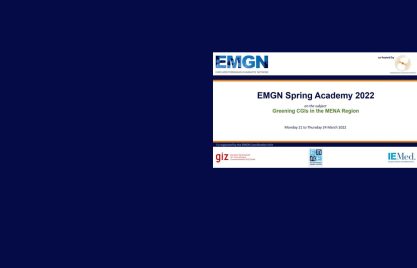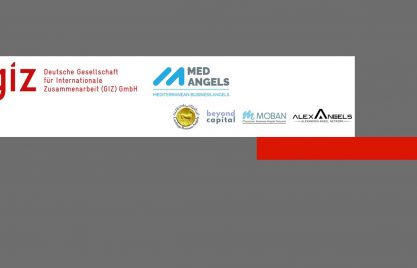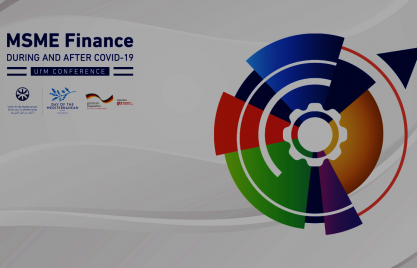Greater financial inclusion is assumed to begin with the availability of simple transaction accounts for the unbanked population. A key prerequisite is, however, often still missing: having a formally recognized identity. How can technology drive financial inclusion by enabling identification?
Identification is crucial in all domains of life. Legally recognized IDs facilitate transactions between people and institutions, be it for education, health, government services, trade, or finance-related purposes. As of 2017, an estimated one billion people have difficulty with proving their identity, i.e. around 40% of people in developing countries. Of the 1.7 billion unbanked adults, 19% cite lack of necessary documentation as the main reason for not having access to accounts.
Given the importance of identification, the UN Sustainable Development Goals (SDGs) call for a “legal identity for all” by 2030. Progress towards that target will come down to the ability to leverage existing and new technologies for digital IDs. However, many of today’s digital ID solutions are centralized. In current centralized digital ID systems, lack of interoperability between different systems, countries, or sectors is an issue, particularly in cross-border and cross-sector use cases. Data leaks, commercial trading with data, and invasive advertising campaigns compromise privacy and pose a constant risk.
Jolocom had the opportunity to attend the Arab #FinTex Symposium and explored alongside policymakers, regulators, professionals and development agencies the potential of novel technology, especially blockchain, in improving financial inclusion in the Arab World.
In the Arab region, just over two in five adults have a bank account, i.e. 52% of men and 35% of women on average. Yet, 86% of men and 75% of women have a mobile phone and internet penetration at 65% is higher than the global average. Moreover, public and private sector stakeholders are already experimenting with electronic forms of IDs – from the UAE’s national IDs to the UNHCR’s eID for refugees.
By prioritizing privacy, security, and human rights, Jolocom’s decentralized solution empowers people to be sovereign over their personal data. In this self-sovereign identity paradigm, individuals and entities can create and manage their identifiers. In practice, people can use their smartphones, equipped with Jolocom’s Smart Wallet, to store their personal ID information and access services quickly and securely, including entering the formal financial sector.
An increasing number of self-sovereign ID providers, including Jolocom, are active in the Decentralized Identity Foundation and design their platforms with interoperable standards – through a Universal Identity Layer – to ensure that their ID solutions are compatible with one another.
This type of control over our personal data is only made possible by blockchain technology. Blockchain, or so-called distributed ledger technology (DLT) in general, relies on an immutable, public register for the recording of information to enable direct peer-to-peer transactions without requiring a central party. For digital ID use cases, this means that identity information is not stored centrally. In the case of Jolocom’s Smart Wallet, it is stored only on the user’s phone and in a secure decentralized database. Furthermore, Jolocom’s technology is compatible with a wide range of different blockchains, and currently uses Ethereum and IPFS.
Conversations at the regional symposium also highlighted the relevance of fast and secure Know Your Customer (KYC) procedures to meet financial inclusion and integrity objectives in a vibrant fintech ecosystem in the Arab region. The key takeaway: Get rid of paper-based processes and enable cross-border interoperability and standardization. A decentralized, mobile-accessible digital ID system is a novel approach to electronic, proportionate KYC regimes when opening accounts while meeting compliance with international AML/CFT requirements and safeguarding privacy rights of citizens. With self-sovereign ID services, citizens have their IDs at their fingertips to register and transact with financial service providers. Financial institutions can thus onboard a greater number of customers more efficiently and securely in a secure data environment.
Digitally ID-enabled financial inclusion can help bring up to 57% of people, as well as owners of micro, small, and medium-sized enterprises (MSMEs) in the Arab region, into the formal financial system and economy. Given the mobile and internet connectivity and economic opportunities in Arab countries, self-sovereign IDs hold tremendous potential for unlocking social and economic development gains.
By Kai Wagner and Ellie Stephens, Jolocom
Access this post in Arabic: الشمول المالي يبدأ بالهوية للجميع
Edited by Atilla Kaiser-Yücel and Armin Satzger. This blog post is part of the “Fintech and Blockchain for Financial Inclusion in the Arab World Blog Series,” published on the Arabic FinDev Gateway and GIZ’s fimena.org. It explores some of the key issues that were discussed at the 2018 Arab #FinTex Symposium held in Abu Dhabi, UAE, from December 12-13, 2018 under the Financial Inclusion for the Arab Region Initiative (FIARI) by AMF, GIZ on behalf of BMZ, AFI, and World Bank, co-hosted by the UAE Central Bank.



